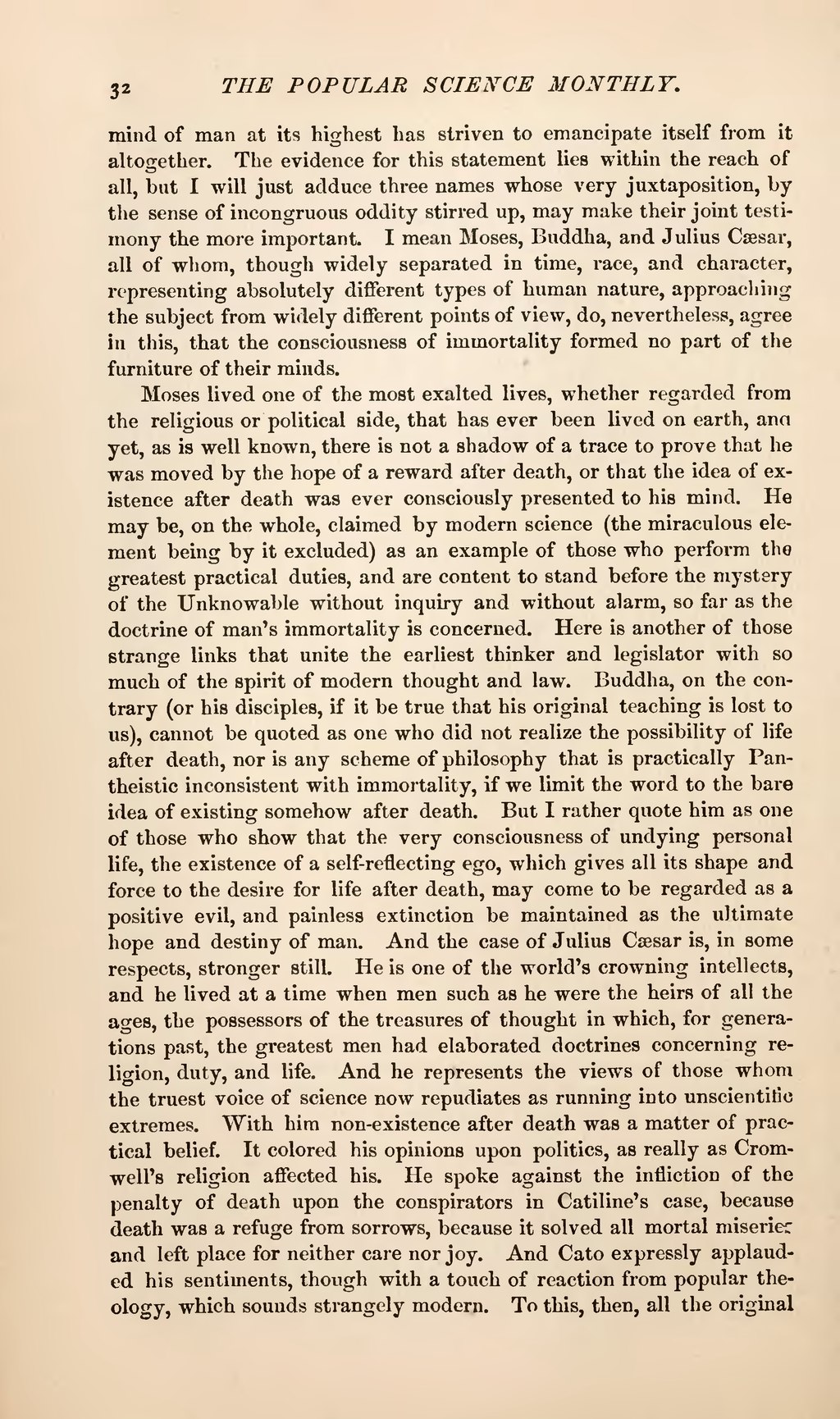mind of man at its highest has striven to emancipate itself from it altogether. The evidence for this statement lies within the reach of all, but I will just adduce three names whose very juxtaposition, by the sense of incongruous oddity stirred up, may make their joint testimony the more important. I mean Moses, Buddha, and Julius Cæsar, all of whom, though widely separated in time, race, and character, representing absolutely different types of human nature, approaching the subject from widely different points of view, do, nevertheless, agree in this, that the consciousness of immortality formed no part of the furniture of their minds.
Moses lived one of the most exalted lives, whether regarded from the religious or political side, that has ever been lived on earth, and yet, as is well known, there is not a shadow of a trace to prove that he was moved by the hope of a reward after death, or that the idea of existence after death was ever consciously presented to his mind. He may be, on the whole, claimed by modern science (the miraculous element being by it excluded) as an example of those who perform the greatest practical duties, and are content to stand before the mystery of the Unknowable without inquiry and without alarm, so far as the doctrine of man's immortality is concerned. Here is another of those strange links that unite the earliest thinker and legislator with so much of the spirit of modern thought and law. Buddha, on the contrary (or his disciples, if it be true that his original teaching is lost to us), cannot be quoted as one who did not realize the possibility of life after death, nor is any scheme of philosophy that is practically Pantheistic inconsistent with immortality, if we limit the word to the bare idea of existing somehow after death. But I rather quote him as one of those who show that the very consciousness of undying personal life, the existence of a self-reflecting ego, which gives all its shape and force to the desire for life after death, may come to be regarded as a positive evil, and painless extinction be maintained as the ultimate hope and destiny of man. And the case of Julius Caesar is, in some respects, stronger still. He is one of the world's crowning intellects, and he lived at a time when men such as he were the heirs of all the ages, the possessors of the treasures of thought in which, for generations past, the greatest men had elaborated doctrines concerning religion, duty, and life. And he represents the views of those whom the truest voice of science now repudiates as running into unscientific extremes. With him non-existence after death was a matter of practical belief. It colored his opinions upon politics, as really as Cromwell's religion affected his. He spoke against the infliction of the penalty of death upon the conspirators in Catiline's case, because death was a refuge from sorrows, because it solved all mortal miseries and left place for neither care nor joy. And Cato expressly applauded his sentiments, though with a touch of reaction from popular theology, which sounds strangely modern. To this, then, all the original

